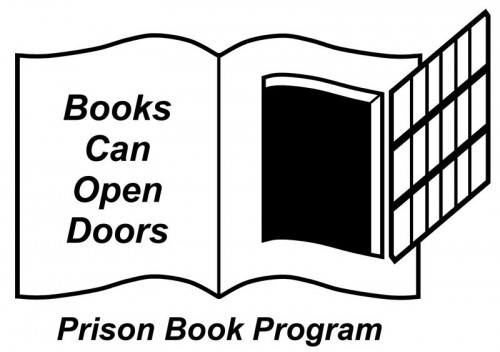There is little room for personal development in prison. Hours spent alone, even with others, are all marked by the time you spend there, whether it be 20 months or 20 years.
At United First Parish Church, a Unitarian church in Quincy, the Prison Book Program helps prisoners break out of day-to-day mind-rotting activity and gives them a chance to develop their personal selves by providing them with books of their choice. With the occasional exception of books that contain sexual or violent content, prisoners are free to request what they would like to read, including materials to aid them in the completion of their GED.
Education, along with working after being released from incarceration, is proven to reduce the rate of recidivism, the likelihood that a prisoner will return to the prison system. The Prison Book Program is essentially a community service project aiming towards reducing the rate of recidivism and helping to stimulate the minds of the thousands of prisoners they’ve reached over time.
The Suffolk Organization for Uplifting Lives through Service (S.O.U.L.S.) Center offers students the opportunity to help out with the Prison Book Program every Thursday evening.
Francesca Catrone, a psychology student at Suffolk University, finds weekly solace in the program.
“I haven’t done it before this year,” said Catrone. “I just started this year because I have a community psychology class [with Professor Harkins], so I have to do 60 [community service] hours. I was on SU Connect and found this one that fit into my schedule. It seemed interesting…you have to read letters from inmates and you get to send them books according to what they request.”
The program goes something like this: volunteers read through letters and try to search and fill as many requests as volunteers can, afterwards placing the bundled orders and invoices into boxes to be shipped out to prisons throughout the nation. In the basement of the United First Parish Church, hundreds of orders are filled per session.
Catrone said that the prison book program is far behind on fulfilling orders. In September, it was still fulfilling orders from March, and now the program is currently fulfilling orders from May. She also described the sessions as emotionally intense for some.
“I’ve had people do it with me. They read the letters and they cry,” she said. “I’ve read letters from everywhere. Some letters are more like ‘I want this…thank you’ and others say ‘I really want to further my education, and I want to get my GED.’”
For that reason, the books that are highest in demand are dictionaries.
Although Suffolk only offers six slots available for students to sign up in per week, if you express a high level of interest to coordinators of the program, it is not difficult to be included in the sessions.
“Getting involved in community service or with a disadvantaged group gives you a different perspective and can help you help them,” said Catrone. In a blog post on the Prison Book Program’s blog, a man named Edward Laccarino’s book request made it online. The essay read:
“Books are important to me because it keeps me in touch with reality. It gives me reason to get out of bed. For us warehouses here 10 years or more, have lost contact with family and friends who have been wore down. For being one minute the head of household, the bread winner, who now your spouse has to get a job and also take care of the money just not there. We ask for dictionaries so we can use them to write letters and sound educated and well informed in this world where we lost dignity and are treated like kids, losers, nobodies, talked down on and belittled by guards and staff. Computer repair books are biggest impact because I can face a future and be prepared and have a skill not many others can have time to perfect.”
Students who would like to participate in the Prison Book Program can go to SU Connect, which is located on MySuffolk, and sign up for a session.













